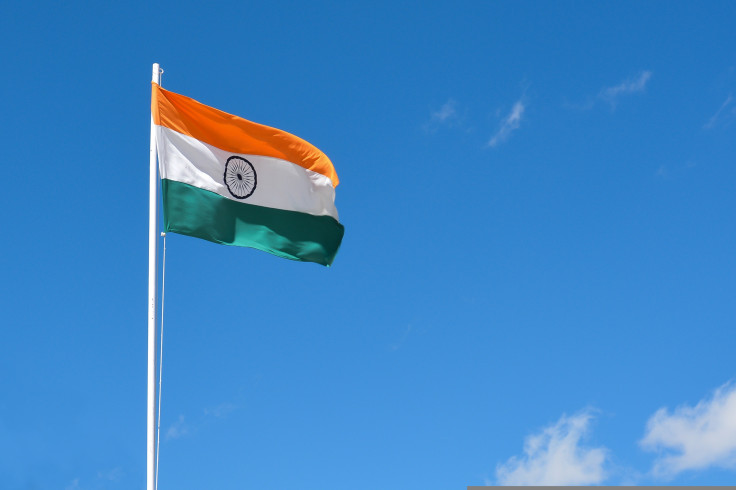Controversy erupts over use of 'Bharat' in G-20 summit dinner invites as India's identity debate heats up
Critics contend that the use of "Bharat" as the name for India in several Indian languages, including Hindi, signals a resurgence of nationalist ideology, with the dinner invites notably addressing President Droupadi Murmu as the "President of Bharat".

The Government of Prime Minister Narendra Modi has ignited a fierce debate by using the term "Bharat" instead of India in invites for a dinner party at the upcoming G-20 Summit in New Delhi, scheduled for September 9 to 10.
While some hail the move as a return to India's historical roots and a rejection of colonial influences, others view it as a divisive and politically motivated manoeuvre.
India, now the world's most populous nation and the fastest-growing major economy, has been experiencing a surge in nationalistic sentiments over the past year. The decision to refer to India as Bharat on the official G-20 Summit dinner invitations has deepened this discourse.
The term Bharat is the name for India in several Indian languages, including Hindi. Critics argue that its use represents a resurgence of nationalist ideology. Notably, the invites also addressed the President of India, Droupadi Murmu, as the "President of Bharat".
This development follows closely on the heels of a speech by Mohan Bhagwat, the chief of the Hindu nationalist organisation Rashtriya Swayamsevak Sangh (RSS), which is an ideological mentor to the ruling Bharatiya Janata Party (BJP). Bhagwat had advocated for the replacement of India with Bharat in his address, asserting that India was a name imposed by British colonial rulers and symbolised a historical period of subjugation.
BJP Rajya Sabha MP Naresh Bansal echoed these sentiments during the recently concluded monsoon session, arguing that the name India is a reminder of "colonial slavery" and should be expunged from the Constitution.
Bansal stated: "The British changed Bharat's name to India. Under Article 1, the Constitution states: 'India, that is Bharat.' Our country has been known by the name 'Bharat' for thousands of years ... it is this country's ancient name and is found in ancient Sanskrit texts. The name 'India' was given by the colonial Raj and is thus a symbol of slavery. The name India should be removed from the Constitution."
The BJP has also used this issue as a point of contention against the new opposition bloc, INDIA (Indian National Developmental Inclusive Alliance). The BJP has repeatedly asserted that the name India is a relic of colonial history, aiming to position itself as the champion of a nationalist agenda.
Union Minister of State for Electronics and Technology Rajeev Chandrasekhar defended the use of Bharat, stating: "I don't understand what is wrong in writing President of Bharat. Our country is Bharat. I don't think there should be any problem."
Leaders of the INDIA bloc have actively engaged in the debate. Congress leader Jairam Ramesh criticised the move on social media, and Aam Aadmi Party (AAP) national convener and Delhi chief minister, Arvind Kejriwal, also voiced opposition to the renaming concept, accusing the BJP of trying to politicise the issue for electoral gain.
The name India has its roots in the Anglicisation of the Sanskrit word for the Indus River, Sindhu, and was introduced during the British colonial rule from 1858 to 1947. In contrast, the name Bharat has Sanskrit origins and appears in the Puranas, ancient Hindu religious texts, which describe a vast landmass where humans reside, with one region known as Bharatavarsa.
Another historical name for the country is Hindustan, meaning "land of the Indus" in Persian. While it gained popularity during the Mughal era and is often invoked by Hindu nationalists, it is not officially recognised as the legal name for India in the constitution.
On social media platforms, the debate over which name to use has been intense, with passionate arguments from both sides. Some, like Mehbooba Mufti, President of the Jammu and Kashmir Peoples Democratic Party, criticise the shift as undermining India's foundational principle of unity in diversity.
Mufti wrote: "BJP's aversion to India's foundational principle of unity in diversity has touched a new low. By reducing India's many names from Hindustan & India to now only Bharat shows its pettiness & intolerance."
However, others see the move as anti-imperialist and an assertion of India's authentic historical identity.
Former Indian cricketer Virender Sehwag expressed support for the change, stating: "I have always believed a name should be one that instils pride in us. We are Bhartiyas, India is a name given by the British, and it has been long overdue to get our original name 'Bharat' back officially."
BJP MP Harnath Singh Yadav echoed this sentiment, emphasising the cultural significance of Bharat and asserting, "The entire country is demanding that we should use the word 'Bharat' instead of 'India.' The word 'India' is an abuse given to us by the British whereas the word 'Bharat' is a symbol of our culture. I want there should be a change in our Constitution, and the word 'Bharat' should be added to it."
The name Bharat is currently mentioned only once in the Indian Constitution, necessitating an amendment if the proposed name change is to be implemented.
MP Jairam Ramesh of the opposition Indian National Congress countered the BJP's stance, saying: "Mr Modi can continue to distort history and divide India, that is Bharat, that is a Union of States. But we will not be deterred. After all, what is the objective of INDIA parties? It is BHARAT—Bring Harmony, Amity, Reconciliation And Trust. Judega BHARAT, Jeetega INDIA!"
As the debate rages on, the use of Bharat in the G-20 Summit dinner invitations has become a focal point for a broader discussion on India's identity, history, and the implications of such a change for the nation's future. The world watches as India grapples with this complex and contentious issue.
© Copyright IBTimes 2025. All rights reserved.





















